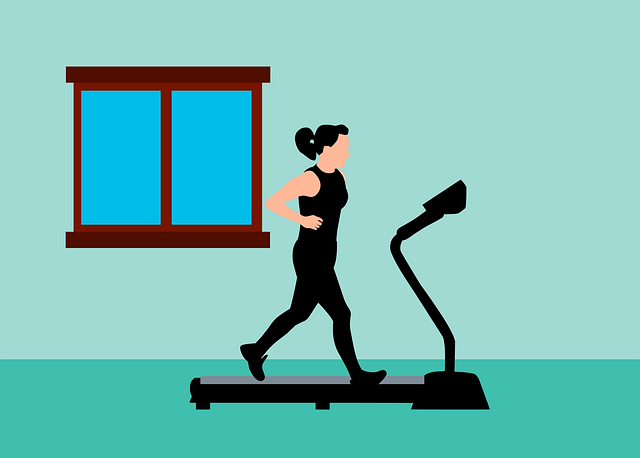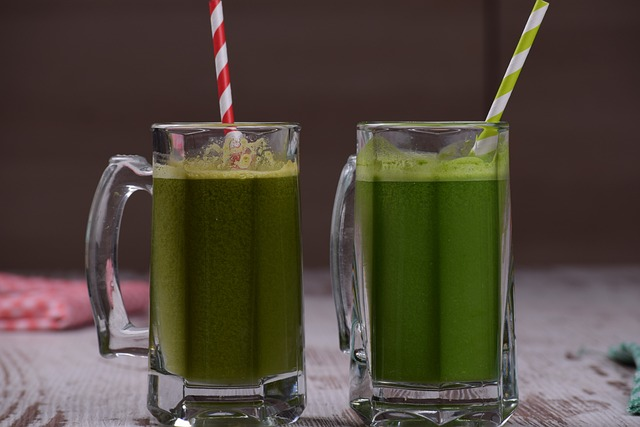Weight loss is a completely individual journey. The length of time it takes for you to achieve your weight loss goals will depend on a myriad of factors. This means even if you start losing weight with a friend or family member, they may see different results.
When losing weight, it’s important to stay motivated and know what to do when you hit a plateau. Through lifestyle changes such as reduced portion sizes, healthier food options, and a regular exercise plan, you can reach your ideal body weight.
Below we look at what factors may affect your weight loss speed and how to track your weight loss journey.
What is Weight Loss?
Weight loss is something that most of us have tried to achieve at some point in our lives. Whether you have decided to go on a ‘crash diet’ or have looked into weight loss pills, there are lots of options online that make weight loss seem easy.
Weight loss happens when you burn more calories than you consume. When we eat more calories than we burn, these calories are stored in the body for the future as fat. When we burn more calories than we consume, our body will use the stored calories in our body fat for energy.
Calories are acquired through food and drink. If you want to lose weight effectively, you need to pay attention to the calories in your diet. You can write down your calorie intake for the day or use a calorie counter app as a guide.
You burn calories throughout the day, through activities like walking to work, doing the laundry, and even breathing. To burn more calories than we consume, we need to incorporate an exercise regime into our week. Whilst you do not need to exercise every day to lose weight, you should be exercising 5 to 6 days a week with some rest days.
It stands to reason then, that the more exercise you do and the fewer calories you consume, the faster you will notice weight loss results. Weight loss should be done in a healthy way, otherwise, you could risk burnout and falling back into old eating habits because of exhaustion and hunger.
Some people still struggle to lose weight when reducing their calorie intake. This may be because they are not burning more calories than they are consuming, or they have a condition that affects their metabolism or weight. Health conditions like thyroid disorders or polycystic ovary syndrome (PCOS) can affect weight loss.

Factors that Affect Weight Loss Speed
Several factors can affect weight loss speed, such as metabolism, diet, and exercise. Understanding what affects your weight loss speed can help you focus on lifestyle changes that will directly impact your weight loss journey. You should be aware that we all lose weight differently, as everybody is unique.
Diet
Your diet has a major impact on your weight loss speed, as reducing your calorie intake will have a direct impact on how much energy you store. Certain diet plans can have accelerated weight loss results, such as those with intense food restrictions like the ketogenic diet.
Although these can help you lose weight quickly, unless you plan to stick to the diet for the rest of your life it is not a sustainable way to lose the weight you want.
It is much better to change your diet through healthier lifestyle choices, such as adding more vegetables to your plate, cutting down on portion sizes, reducing late-night snacking, or swapping white bread for wholemeal.

Metabolism
Your metabolism is the rate at which you process anything you consume, which includes digesting food, burning calories, and retrieving stored energy from fat. You can influence your metabolism through the foods you eat and regular exercise, especially through strength training.
Your genetics are unique, which means your metabolic rate may be faster or slower than your parents or your friends. Some people are lucky enough to be blessed with a fast metabolism, which means they will burn calories faster.

As every person’s metabolism is different, this means weight loss results can vary greatly from person to person.
Exercise
Exercise also has a huge impact on weight loss speed. The more exercise you do, and the higher the intensity of the exercise, the more calories you will burn. Combined with a lower daily calorie intake, you will see weight loss results.
The type of exercise you do has a major impact on the amount of calories you burn. For instance, cardio is a great way to burn calories quickly, especially through exercises like spinning classes or running. It is recommended to get around 150 minutes of moderate-intensity exercise a week for weight loss, or 75 minutes of high-intensity exercise.
Daily Activities
Throughout the day you are burning calories. From the moment you step out of bed, you are using energy to breathe, talk, and move. It makes sense then, that people with active lifestyles will burn more calories throughout the day and may see faster weight loss results.
Different daily activities will have a different impact on weight loss. For instance, someone who is in an active job like a laborer who is on their feet all day will burn more calories than someone at an office job, who sits down for eight hours a day.
Starting Size
Your starting body weight will impact your weight loss speed. For instance, someone who is obese is likely to lose weight quicker initially than someone who is overweight on a BMI (body mass index) scale. This is because the heavier a person is, the more energy stores they have in their body to draw from.
Recommended Weight Loss Rate
According to the experts in nutrition and obesity, a sensible and healthy weight loss should be around 1 to 2 lbs a week, which is roughly 0.5 to 1 kg. It is recommended to lose weight through an overall lifestyle change, which means a healthy, balanced diet, and regular physical activity.
This means burning 500 to 1,000 calories more than you consume in a day. Experts recommended reducing your calorie intake by 600 calories a day but introducing this gradually so you can get used to eating less.
Women should be consuming around 1,400 calories per day with a 600-calorie deficit, and men should be consuming around 1,900 kcals. Losing weight quicker than this could lead to a plateau or an unsafe weight loss. The faster you lose weight through fad diets, the more likely you are to put the weight back on.
Changing the Type of Calories You Eat
Reducing your calorie intake is only part of the process. If you reduce your calorie intake but eat sugary and processed foods, you may not notice a huge change in your body. To set yourself up for success in weight loss, you need to change the type of calories you eat.
It is recommended to eat a variety of different foods and nutrients that support a healthy body and metabolism. Eating your five a day is just one way to change the type of calories you eat. Starchy foods such as pasta, rice, and potatoes are also part of a balanced diet, but you can improve your diet by choosing wholegrain options.
We also need regular protein which can be found in lean meat like chicken, as well as eggs, lentils, and beans. You should choose foods that are low in saturated fats and are not processed. It is recommended to eat two portions of fish every week, and one should be an oily fish like mackerel. This contains omega-3 fatty acids and essential nutrients for a healthy body.
Dairy is another essential part of a balanced diet, but you shouldn’t have too much. Choosing lower-fat or sugar options means you can eat a larger portion with fewer calories, such as low-fat Greek yogurt. Fat should still be included in your diet, but this should be healthier fats, like olive oil.
Eating Too Few Calories
Although it makes sense to eat as few calories as possible for weight loss, this is actually not the case. Eating too few calories can make it harder to lose weight and cause other problems. If you do not eat enough calories for your body’s natural processes, your metabolism will slow down. This means your body will preserve energy and go into survival mode.
Genetics and Other Factors
Your genetics can have an impact on how quickly and easily you lose weight. This may make it harder for you to lose weight and if you have a certain genetic variant, you may lose weight slower than other people.
Weight Fluctuations
When losing weight, you may notice that your weight fluctuates: this is completely normal. An adult’s weight can fluctuate around 5 to 6 pounds in a day, depending on what they’ve eaten, when they last used the toilet, and how much water they are retaining.
You should not weigh yourself every day during your weight loss journey, as many processes in the body can affect what you weigh in as.
A body weight scale should be used periodically to check your progress. You might notice that your weight stays the same for a couple of weeks, but you look and feel lighter. This could be because you have added additional body weight in muscle, rather than fat.
How to Track Your Weight Loss Journey
There are many ways to track your weight loss journey including:
● monthly weigh-in sessions, using the same scale at the same time of day
● using a tape measure to measure certain areas of your body to track weight loss
● trying on clothes to see how they feel and fit
● using a body fat calculator
● taking progress pictures
You should set realistic weight loss goals based on the recommended weight loss rate. You can then track these goals and see what you need to do to reach them. It can be easier to track your weight loss journey by keeping a weight loss journal and creating a monthly plan.
You can use weight loss tracking tools, like calorie counting apps and smartwatches. A smartwatch can be used to track your calorie intake and count the number of calories you burn through daily activities and exercise.
What to Do if You Hit a Plateau
A weight loss plateau happens when you see no results from the plan you are following, or your results are very slow compared to before. If you hit a plateau, there are many ways to bring back your weight loss results.
The first thing to do if you hit a plateau early in your weight loss journey is to recalculate the number of calories you need to burn and how many you are consuming. You should be looking at around a 600-calorie deficit for healthy weight loss, more than this could make you plateau. Less than this and you may not see results.
You may also need to increase how much you move. How much exercise you do is important, but your activity levels outside of exercise classes or the gym have a significant impact on weight loss too. Moving more could help with your weight loss plateau, even if this means parking further from your office, walking to the shops instead of driving, or using a standing desk.
Fat loss can plateau because of stress levels, so you should look at managing your stress. When we feel burnt out and stressed, this can negatively impact our performance, recovery, food choices, and motivation.
Crash Dieting: Why it Won’t Help You Lose Weight
Crash dieting doesn’t help you to lose weight because most of the weight loss you see from a crash diet is fluid. You are also at risk of losing protein from your body, as you go into a process known as gluconeogenesis. This happens when you are not getting enough calories and so your body tries to maintain blood sugar (blood glucose) levels by basically melting your muscles.
What to Do Instead of Crash Dieting
Instead of crash dieting, you should look at making overall positive lifestyle changes that will help with weight loss and maintaining a healthy weight. The problem with crash diets is that many people go back to the way they were eating before when the diet is done. All the weight lost through the crash diet will simply re-appear, which is frustrating and demotivating.
Instead of crash dieting, you should:
● eat a varied, balanced diet
● reduce your calorie intake by 600 kcals a day
● have a regular exercise routine, with both cardio and weight training (as gaining more muscle can increase your metabolic rate 24/7)
● set realistic weight loss and performance goals
● speak to your doctor about prescription weight loss medication that can help you safely lose weight if you are overweight or obese
● be more active in your daily life, such as walking more and sitting down less
Successful weight loss will take time, dedication, and patience. It may take several years for you to safely achieve your weight loss goals and develop long-lasting habits that will improve your health and weight in the future.
Sources
https://www.next-health.com/blogs/news/how-long-does-it-take-to-see-weight-loss
https://www.womenshealthmag.com/uk/fitness/fat-loss/a27027695/how-long-does-it-take-to-lose-weight/










